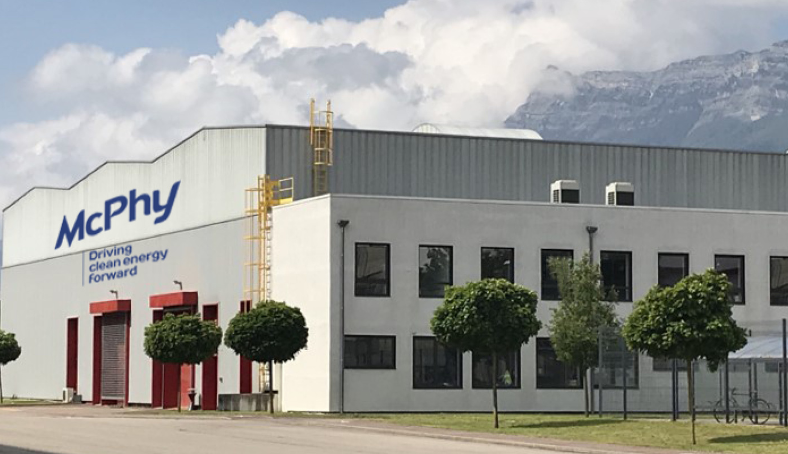The French success story fueled by European subsidies
Bpifrance’s new advertising campaign calls for conversations around European subsidies and programs aimed at supporting entrepreneurs. Big Media talks with Jean-Baptiste Lucas, CEO of McPhy, which has benefited from such subsidies. McPhy, a specialist in hydrogen production and distribution equipment, is emerging as a major player in the worldwide deployment of this clean energy….

Bpifrance’s new advertising campaign calls for conversations around European subsidies and programs aimed at supporting entrepreneurs. Big Media talks with Jean-Baptiste Lucas, CEO of McPhy, which has benefited from such subsidies.
McPhy, a specialist in hydrogen production and distribution equipment, is emerging as a major player in the worldwide deployment of this clean energy. With its wide range of electrolyzers, the company is actively contributing to the transition toward cleaner energy.
European subsidies play a crucial role in this success. In particular, the financial support of “France Relance,” the country’s economic stimulus plan for major investments and forward-looking technologies, and the European value chain have helped McPhy to thrive. A notable example of this collaboration is the installation of the electrolyzer Gigafactory in Belfort, in eastern France, which was partly financed by the Industrial Investment Program for Europe and Important Projects of Common European Interest (IPCEI).
What is IPCEI?
The Important Project of Common European Interest (IPCEI), is a European mechanism designed to foster innovation in strategic industrial fields of the future through transnational European projects.
It is not a European funding program, but a notification to the European Union. This mechanism allows member states’ public authorities to finance initiatives beyond the limits usually set by European state aid regulations. To qualify for IPCEI status, the project must go beyond the state of the art, i.e. take stock of existing technological patents and scientific publications, and find alternative solutions where appropriate. It must also involve technological innovation players from several EU member states. The various players can develop distinct, but complementary and necessary, components of the overall system. Once the conditions have been met, the member states receive a notification of the project.
European subsidies, an essential lever
« This European subsidy will allow us to finance the development and production of the first series of our new generation of electrolyzers, » Jean-Baptiste Lucas says. The benefits are numerous. First, these grants have filled a crucial need for financing, difficult to obtain by traditional means, given the company’s stage of technological development. « With a total of €114 million, we will be able to cover the operational costs of the first series, as well as our R&D spending for the program’s development, » he continues.
These grants have also strengthened McPhy’s credibility in the eyes of European authorities, validating its strategy and seriousness in the field. Last but not least, the substantial grant provides long-term visibility, essential for planning and executing the company’s projects.
Funding for the electrolyser Gigafactory in Belfort
Among the projects that McPhy has been able to finance thanks to IPCEI grants, the electrolyzer Gigafactory in Belfort demonstrates Europe’s commitment to innovation and decarbonization. With delivery scheduled for the first half of this year, French Economy Minister Bruno Le Maire, who in 2020 expressed his desire for a French « giant factory, » was delighted with the news, saying: « I welcome this announcement by McPhy, which is one of the first Gigafactories within the framework of the National Hydrogen Strategy, and demonstrates the capacity of this new technology to be a vector of growth and industrial development for our regions.”
European subsidies’ concrete benefits for McPhy
European subsidies provide many substantial benefits for the company. « We would have had great difficulty finding bank financing because the company was not yet profitable. So, these grants have been a catalyst for our growth, providing us with much-needed financial stability and institutional recognition, » Jean-Baptiste Lucas explains, noting the importance of holding on to market share. « €114 million is a very significant sum. It gives us visibility over the next few years, provided of course that we meet our milestones and show that these subsidies are leading to significant progress.” As for feedback on the Hydrogen IPCEI, McPhy is one of the pioneers in this first wave of beneficiaries. « Although the project is still underway and therefore cannot yet give rise to an assessment, » the company intends to take a greater interest in the various European funding schemes.
Europe, the driving force behind the hydrogen industry
« Europe has played a crucial role in structuring the hydrogen industry, both in terms of demand and supply, » Jean-Baptiste Lucas says. The company sees a promising dynamic in Europe’s hydrogen industry. Since 2010, the European Union has been stepping up its efforts on behalf of the planet, setting very ambitious targets in the fight against global warming. A case in point is the Green Deal, launched at the end of 2019, which aims to achieve carbon neutrality by 2050, with a reduction in greenhouse gas emissions of at least 55% by 2030. In this respect, the transition toward renewable energies and the decarbonization of key economic sectors are essential.
Related
Trending

